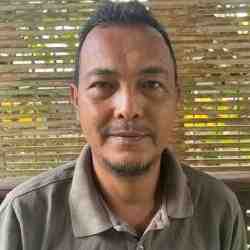Introdução
Luiz Tadeo Damaschi's goal is to make one of the world's largest cities a greener place. A resident of Sao Paulo, Luiz Tadeo plans to raise and plant various types of fruit trees throughout the city to put back a bit of the nature that has been overwhelmed by concrete.
A nova ideia
With the slogan "Plant, Grow, and Raise Consciousness," Luiz Tadeo started the Sao Paulo Green Project in February 1992. The idea is to get Sao Paulo to restore some of the greenery it has lost over the last few decades. As Brazil's commercial and industrial center grew, mile upon dense mile of gray, harsh-lined concrete has covered the land, leaving only a few places with precious little greenery. To accomplish the regreening of Sao Paulo (and eventually other cities) on a large scale, Luiz Tadeo has established a multifaceted program to draw people in. It is educational, fun, and economical, and therefore should spread from neighborhood to neighborhood and then city to city. He grows the trees to be planted around the city in nurseries that also serve as training, recreation, and education centers both for those who participate in the plantings and for the general public. He encourages schools, community groups, and citizen organizations to take on the responsibility of planting wherever they live or work."Humanity has been shocked by the speed of environmental destruction occurring around the world," says Luiz Tadeo. He decided to take on and reverse that tide in his own city. Getting communities and schools involved in planting trees will not only beautify Sao Paulo but make a statement about overurbanization. He hopes his project will spark environmental debates and discussions in Sao Paulo and thereby plant seeds of environmental awareness in the minds of citizens.
O problema
Sao Paulo rivals any so-called First World city. From the office towers of Paulista Avenue to the automobile factories on the city's outskirts, Sao Paulo is the economic powerhouse that runs Brazil. The region produces two-thirds of all of Brazil's economic output.The urban sprawl of Sao Paulo covers an area of more than 30,000 square kilometers, and appears to have been developed with almost a complete lack of planning. It is so huge that even longtime taxi drivers have to use a map. The sprawl of buildings seems to be never ending, and there are few parks to break up the gray monotony. "The industrialization of Sao Paulo meant that the natural green areas had to be destroyed to make way for industrial and residential lots," Luiz Tadeo explains.As the city developed, the lower classes were forced further out into the suburbs, turning the remaining green areas into seas of shacks and mud. Luis Tadeo believes that this brutal, unnatural environment very much "contributes to the sense of poverty, violence, and cultural underdevelopment."
A estratégia
Luiz Tadeo is now operating a tree nursery on 10,000 square meters of land in the North Zone donated by the city. He has an agreement with the municipal government to raise seedlings and plant the trees around schools, along streets, and near reservoirs. His initial goal is to form enough cooperative arrangements with community groups and concerned individuals to accomplish the planting of 25,000 trees, as a potent symbol of change and encouragement for the continuation and expansion of the project. On the grounds of this first area nursery, Luiz Tadeo plans eventually to grow around 17,000 trees per year, both fruit-bearing and native trees. He plans to sustain the work financially in part by selling some of the trees privately.While many trees will be planted around the city, others will remain on the grounds, turning the nursery areas into a Center for Environmental Studies. On site, there will be speeches, videos, community events, expositions, and environmental courses. School children will visit and get involved in their own tree planting projects.
A pessoa
Luiz Tadeo has always had a love for trees. While running several businesses himself, he has always found time to take numerous agricultural courses and participate in many environmental forums. He has an astounding technical and scientific knowledge of trees, and, through his Sao Paulo Green Project, he plans to restore some of the area's lost biodiversity by planting various types of fruit and native trees. He has now sold his business and dropped his professional activities to devote his time exclusively to the Sao Paulo Green Project.




